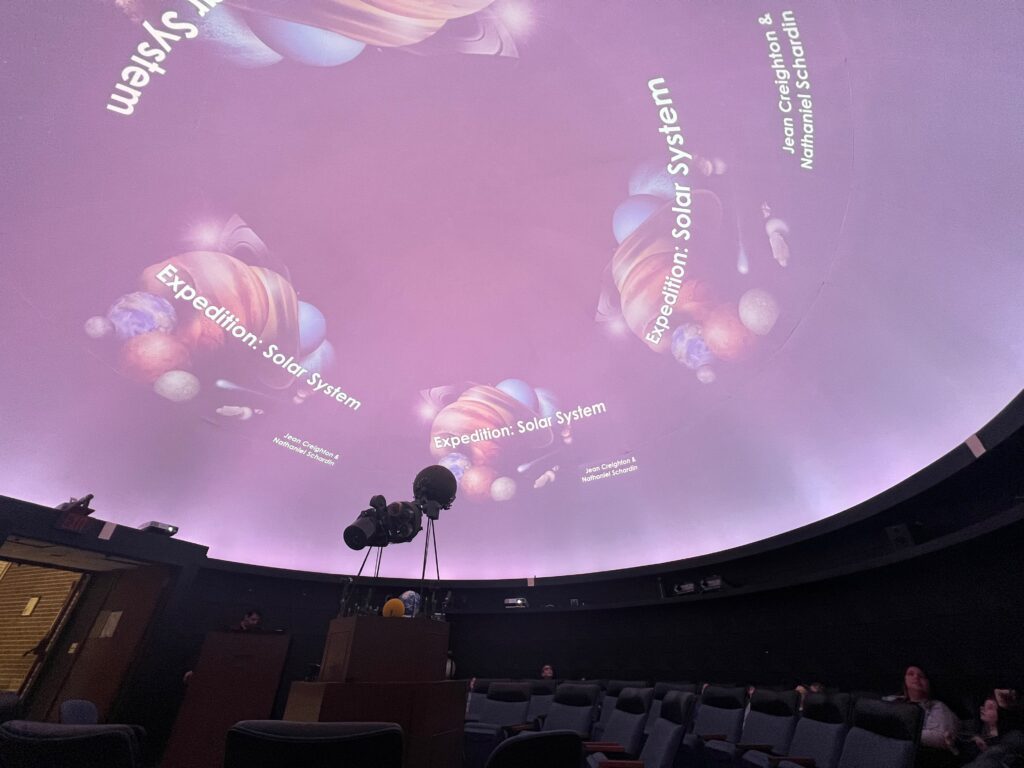As the moon dances in front of the sun on April 8, 2024, the day will briefly plunge into darkness during the “Great American Eclipse“.
This celestial spectacle, marking the first total solar eclipse visible from the U.S. since 2017, promises an awe-inspiring experience for families eager to witness the cosmos in action.

Now is your chance! It won’t be visible again in the United States until 2044.
While Milwaukee will be treated to a partial eclipse, an adventure awaits just a short drive away for those hungry for the full experience.
Here’s your family-friendly guide to enjoying this rare astronomical event, from basic facts to essential safety tips.
The Basics: Understanding the Eclipse
A total solar eclipse occurs when the moon positions itself directly between the Earth and the sun, casting a shadow that briefly turns day into night.
On April 8, this extraordinary event will be visible along a path stretching from Texas to Maine.

Although Milwaukee and the rest of Wisconsin will not experience totality, the University of Wisconsin-Milwaukee (UWM) is hosting a special preparatory session titled “Prepare for the Solar Eclipse” and a “Solar Eclipse Viewing Party“.
This event, scheduled for April 5, 2024, from 7:00 to 8:00 pm, offers an excellent opportunity for families to dive into the fascinating world of solar eclipses.
Best Viewing Near Milwaukee: Road Trip to Totality
For those in Milwaukee longing to bask in the eclipse’s full glory, a journey southward beckons.
There are three accessible options for Milwaukee families:
Enter Sheridan, Indiana – a cozy town set to be in the path of totality. Just a four-hour drive from Milwaukee, Sheridan presents a wonderful opportunity to experience the total eclipse.
Carbondale, Illinois is another option. This rural town is close to the eclipse centerline and also experienced the total solar eclipse of August 21, 2017. A major eclipse viewing event will happen at Southern Illinois University, a six hour drive from Milwaukee.
The closest major city within the path of totality is Indianapolis, Indiana, approximately a four-hour drive from Milwaukee. Dubbed the “Eclipse Capital of the Midwest,” the city is gearing up for the eclipse with a variety of family-friendly events that promise to enhance this once-in-a-lifetime experience.
- White River State Park: Start the day with yoga, enjoy live music, and indulge in a variety of food options.
- NASA at the Indianapolis Motor Speedway: A unique opportunity to learn from NASA experts and engage in STEM activities.
- Conner Prairie and The Children’s Museum: Both locations offer special programming focused on the eclipse, perfect for curious minds.
Safety First: Protecting Your Little Astronomers

Eclipse viewing requires caution to prevent eye damage. Ensure your family’s safety with these tips:
- Eclipse Glasses: Invest in ISO-certified eclipse glasses for each family member. Regular sunglasses are not sufficient protection.
- Supervision: Keep a close watch on children to ensure they keep their eclipse glasses on during the event.
Making the Most of the Eclipse Experience
- Educational Fun: Use the eclipse as a teachable moment about the wonders of the universe. Explain the science in simple terms and encourage questions.
- Plan Ahead: Check out event schedules and book accommodations early, as places fill up quickly.
- Be Ready to Drive: Mobility is essential especially in case of inclement weather. You can’t see anything if there are clouds!
- Pack Essentials: Bring along a day pack with water, snacks, your eclipse glasses, and perhaps a blanket or chairs for comfortable viewing.
- Capture Memories: Don’t forget your camera. While photos can’t do justice to the eclipse, they can capture the joy on your kids’ faces.
Embrace the Adventure
While the eclipse itself will last only a few minutes, the memories created on this cosmic journey with your children will last a lifetime.
So, gear up for an educational adventure, embrace the wonder of the universe, and make April 8, 2024, a date to remember.
Happy eclipse watching, Milwaukee families!
Related Posts
A Parent’s Guide to the Spring Cicada Emergence
Eagle Watching Seasons is Here
3 Planetariums That Are Out of This World!
Calie Herbst, Editor-in-Chief of Milwaukee With Kids, has spent over a decade combining her experiences as a parent of three to create a hub for Milwaukee’s family adventures.
Her decade-long teaching career in Milwaukee Public Schools and academic background, including a Master’s in Teaching from Marquette University and dual B.A.s in Sociology and Spanish from the University of Wisconsin – Madison, fuel her passion for inclusive and engaging family content.
Calie is also a recognized voice in local media, contributing to WISN Channel 12 News, WTMJ Wisconsin Morning News, Fox 6’s Real Milwaukee, and B93.3.
Discover more about Calie’s journey and editorial approach on her About Page and Editorial Policy Page.








